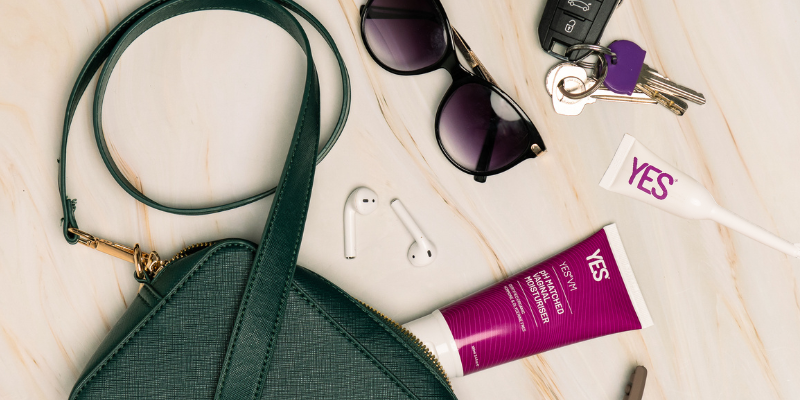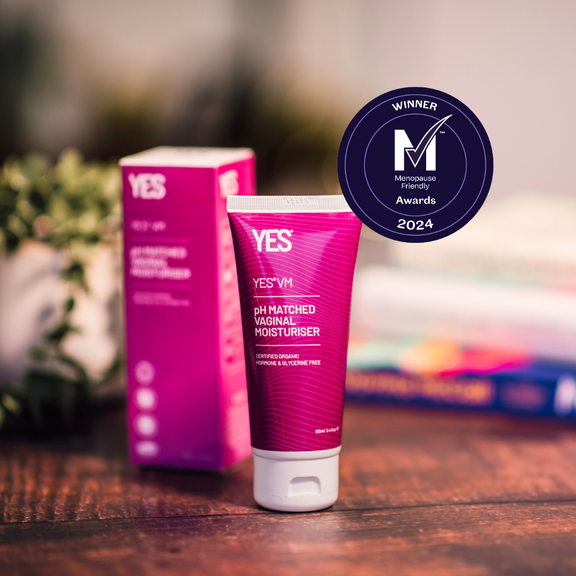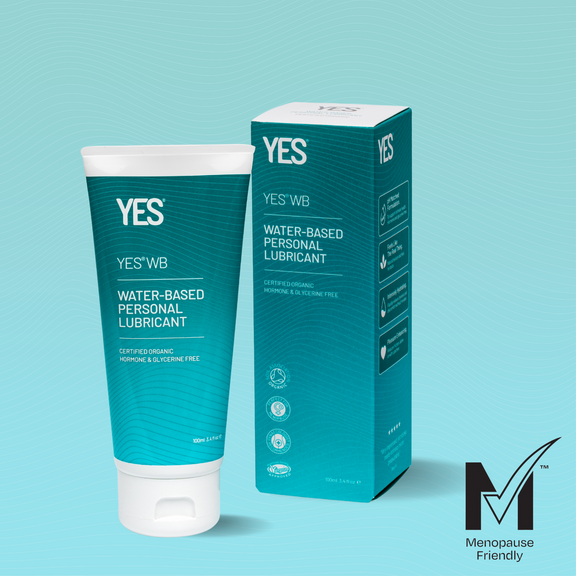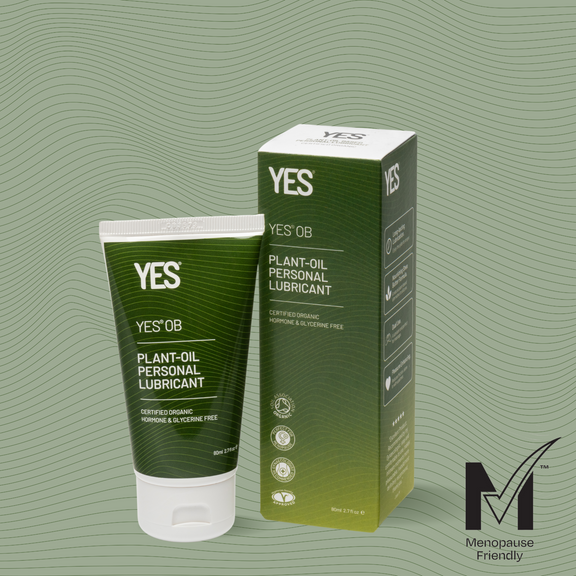Menopause and vaginal dryness: How YES® can help!
Menopause really is the gift that keeps on giving. As if hot sweats, mood swings and brain fog weren’t enough to deal with, nature just had to throw vaginal dryness into the mix! But if you’re suffering, you’re not alone. Around 17% of women under the age of 50, and over half of women over the age of 51[i] who’ve reached menopause, have all experienced vaginal dryness at some point in their lives.
The good news? There is something you can do about it! But first, let’s take a quick look at the ‘why’ behind the dryness.
Why Does Vaginal Dryness Increase During Menopause?
Oestrogen is the main hormone responsible for the vagina’s lubrication, elasticity, and thickness. During perimenopause and menopause, our oestrogen levels start to decline – often leading to vaginal dryness that can be sore, uncomfortable, and even painful.
If you’re experiencing any of the following, these could be signs of vaginal dryness:
- Discomfort during sexual intercourse
- Itching, soreness or burning in or around your vagina
- Vaginal discharge
- Needing to urinate more frequently
It’s always best to seek medical advice if you’re concerned about any symptoms, but if you are suffering from vaginal dryness, there are plenty of things you can do to help.
Treating Vaginal Dryness
As a company committed to Making Vaginas Happy®, we have a whole host of vagina and vulva-friendly products designed to alleviate the symptoms of vaginal dryness and vaginal atrophy. And they’re all glycerine, paraben, and hormone free!

YES® Vaginal Moisturisers
Vaginal dryness doesn’t only impact your sex life: when your vaginal tissues become dry, normal activities – from playing sports to having a smear test – can feel uncomfortable, or even painful. Whether you reach for a tube or invest in some applicators, a dependable vaginal moisturiser can make a world of difference.- YES VM: YES VM is a long-lasting pH-matched vaginal moisturising gel designed to alleviate symptoms of vaginal dryness (including dryness, itchiness, irritation, and burning or pain in the vaginal area) in less than an hour. With moisture released slowly at the rate the body needs it, it’ll keep your vagina hydrated for up to three days.
- How to use: Apply YES VM to your vagina and vulva using your fingers. Containing all-natural ingredients, it’s safe to apply (and reapply) as much as you need for comfort, with no dosage concerns – making it ideal for women recovering from breast and gynae cancers.
- YES VM applicators: YES VM is also available in prefilled applicators to ensure you deliver the right amount of product, exactly where your body needs it. Our discreet packaging allows you to hygienically soothe and rehydrate on the go as well as at home – providing the same instant relief from itching, soreness, and discomfort as our tube formulations.
- How to use: Apply the prefilled applicator to the desired area to target vaginal dryness. The frequency of reapplication depends on the severity of dryness, but you can begin by applying daily, and transition to once every three days to maintain vaginal health.
YES® Lubricants
Without natural lubrication, our vaginas can become incredibly fragile. This makes dryness, irritation, friction, and painful intercourse fairly common during and after menopause – but thankfully, these symptoms can be alleviated with a good quality lubricant.
- Water-based: YES® WB is a water-based lubricant that feels natural, intensely hydrating, and incredibly gentle. With a pH-balanced formula and organic ingredients, you’ll find safe lubrication and fast relief from vaginal dryness. Our water-based lubricant has no smell, no taste, and no stickiness – leaving skin feeling clean and residue-free.
- Plant oil-based: YES® OB nurtures and protects your intimate health while providing long-lasting luxurious performance and glide. As a plant oil-based lubricant, the nourishing shea butter formula reduces friction, creates a protective barrier for sore, dry tissue, and provides soothing relief.
- Coconut oil-based: YES® COCO contains organic coconut oil blended with jojoba oil for our most smooth and nourishing lubricant yet. Widely recommended by gynaecologists and sexual health professionals, it’s ideal for intimate moments and soothing relief from symptoms of vaginal dryness.
For more severe vaginal dryness, usually referred to as vaginal atrophy, it may be necessary to talk to a GP about the vaginal oestrogen products available on prescription.

When to Use a Lubricant Vs. a Vaginal Moisturiser
Lubricants and vaginal moisturisers each serve very different purposes and address very specific needs – which means it’s incredibly important to understand when to use each product to best effect.
Vaginal moisturisers, like YES VM, are designed for ongoing, regular use. They provide long-lasting hydration to the vaginal tissues, help to maintain the natural moisture balance of the vagina, and improve the health of vaginal tissue over time. You should use a vaginal moisturiser to relieve persistent vaginal dryness, increase comfort, and prevent future dryness.
Vaginal Lubricants are intended for temporary, immediate use to reduce friction during sex or masturbation – making intercourse or the use of sex toys more comfortable and pleasurable. You should use lubricants to alleviate discomfort during sex, enhance pleasure, and minimise friction. Lubricants can be applied to the vaginal opening, vulva, or directly onto a partner or sex toy.
The key differences to remember:
- Duration: Vaginal moisturisers provide long-term hydration, while lubricants offer temporary relief during specific activities.
- Frequency: Vaginal moisturisers are used regularly (every few days), while lubricants should be used as needed.
- Purpose: Vaginal moisturisers are intended for general vaginal health and daily comfort, while lubricants are designed to enhance comfort and pleasure during sexual activity.
Even if you’re regularly using a vaginal moisturiser to alleviate daily vaginal dryness, we’d still advise using a lubricant to help ease friction during sexual activities. The wetter the better, right?

References:
[i] Vaginal dryness: individualised patient profiles, risks and mitigating measures - PMC (nih.gov)







